06/19/19
K-State Current - June 19, 2019
K-State Current is a weekly news update for the Kansas Board of Regents to apprise the Regents on a few of the many successes and achievements made by K-State faculty, staff and students.

K-State News
Kansas State University's Beef Cattle Institute, or BCI, and research collaborators from the apparel, textiles, and interior design department and hospitality management department, have received a $30,000 planning grant to further investigate and pursue an educational framework for sustainability using the beef value chain.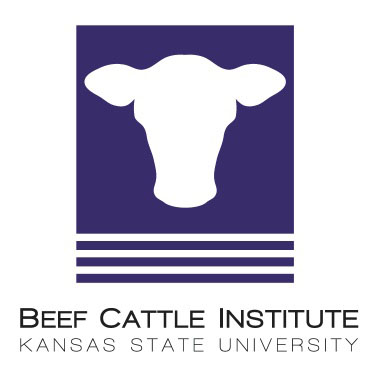
Project directors include Brad White, director of the BCI; Patti Dollarhide, registered dietitian and director of beef value chain alliances with the BCI; Junehee Kwon, professor of hospitality management; and Melody LeHew, professor of apparel, textiles, and interior design.
The $30,000 planning grant, funded by the U.S. Department of Agriculture National Institute of Food and Agriculture, or USDA NIFA, will provide the group with resources to plan for and seek a larger USDA NIFA-funded grant with two other collaborators, such as the U.S. Roundtable for Sustainable Beef and the Noble Research Institute. The larger grant would seek to provide educators with resources for infusing sustainability education into current animal sciences, hospitality management, and apparel and textiles baccalaureate programs using beef cattle as a case study.
"The idea for the grant is to develop faculty, enabling them to deliver curriculum using systems thinking in agriculture supply chains," Dollarhide said. "If the information is not easy to use, they may resort to their biases and teach from personal beliefs and values."
Dollarhide calls modern beef production a perfect case study.
"It is something most everyone has experience purchasing, but has limited understanding of the impacts of their decisions as it relates to people, the environment and profitability," she said.
"There is a need to broaden the sustainability education agenda to examine the value of learning, as well as how it is taught and why," she said. "Our idea is that we would provide a framework. It is not just education about beef, but education about sustainability in a variety of different areas."
Sustainability requires reaching beyond one's discipline and teaching without the requisite foundational knowledge and fact-based information from other disciplines and industry segments. This may lead to a knowledge deficit and misinformed students. The larger grant seeks to provide information and training to these multidiscipline educators to help bridge the gap.
"One of the real advantages of this group is the variety of expertise," White said. "We are bringing together knowledge from several different areas of beef production, sustainability and undergraduate education to create a system for providing a holistic view of sustainability education."
"We want to give these educators a place to go for the facts," Dollarhide said.
The BCI hosted experts from the U.S. Roundtable for Sustainable Beef and the Noble Research Institute earlier this year in Manhattan for a planning session.
Lehning, Tolar appointed to interim vice provost positions
Two positions key to the success of Kansas State University's strategic enrollment management efforts will be filled by experienced administrators on an interim basis while national searches are conducted.
Charles Taber, provost and executive vice president, has announced the appointments of Emily Lehning as interim vice provost for enrollment management and Mary Hale Tolar as interim vice provost for student success. Both Lehning and Tolar will begin their new jobs June 30 and report to Taber.
"These previously announced positions are key to the university's strategic enrollment management, or SEM, structure," Taber said. "Both Drs. Lehning and Tolar have indicated they will not be candidates for the permanent positions. I want to thank them for their willingness to provide the leadership, stability and the balance needed in a time of major transition while we complete the national searches now underway for both the vice provost for enrollment management and vice provost for student success."
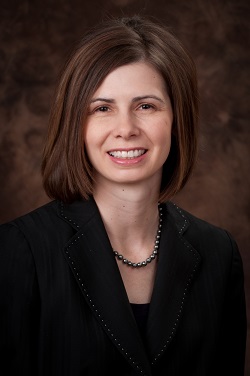 As interim vice provost for enrollment management, Lehning will provide leadership to K-State's enrollment management units particularly focused on the student recruitment, admissions, financial aid and registrar areas. See a list of the units under the vice provost for enrollment management.
As interim vice provost for enrollment management, Lehning will provide leadership to K-State's enrollment management units particularly focused on the student recruitment, admissions, financial aid and registrar areas. See a list of the units under the vice provost for enrollment management.
Lehning, who currently serves as associate vice president for student life and director of New Student Services, has been involved with the recruitment of high school and transfer students to K-State since becoming assistant director of New Student Services in 2001. She was promoted to assistant dean for student life and coordinator of New Student Services in 2005, became assistant vice president for student life and director of New Student Services in 2008 and was named associate vice president for student life and director of New Student Services in 2015.
Lehning has been involved with several key student retention and success programs and initiatives, including freshman and transfer enrollment and outreach, which have helped K-State retain its status as the No. 1 choice of Kansas high school seniors; the creation and leadership of K-State First, the university's first-year student experience program; securing funding to create Wildcat Warm-up, the extended orientation program; and serving as project lead on the $20 million renovation of the historic East Memorial Stadium into the Berney Family Welcome Center, which houses the Career Center and New Student Services. She also helped secure funding for the university's CliftonStrengths program and the K-State Challenge Course. As New Student Services director, Lehning supervises staff of K-State's campus visits program and orientation and enrollment program, All-University Open House and other major campus recruitment events.
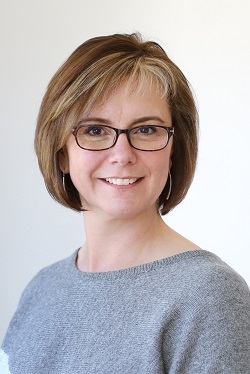 In her role as interim vice provost for student success, Tolar, the director of the Staley School of Leadership Studies, will provide leadership in the student retention, success and progression areas of SEM. This will include working with the university's advising community and advancing the Student Success Collaboration Initiatives. See a list of the units under the vice provost for student success.
In her role as interim vice provost for student success, Tolar, the director of the Staley School of Leadership Studies, will provide leadership in the student retention, success and progression areas of SEM. This will include working with the university's advising community and advancing the Student Success Collaboration Initiatives. See a list of the units under the vice provost for student success.
Tolar joined K-State in 2006 as associate director of the School of Leadership Studies, leading community service, service learning, nonprofit leadership and student engagement efforts on campus. She also directed the Coffman Leadership Institute. She was promoted to director, after serving as interim director, of the Staley School in 2009 and earned tenure and promotion to associate professor in 2014. Tolar's accomplishments as the school's director include completing the privately funded $11 million construction of the Leadership Studies Building; raising more than $11.3 million for the school as part of the Innovation & Inspiration Campaign for K-State, exceeding the initial goal of $3 million; establishing a $2.5 million endowed chair; and helping the school be a host site for the Mandela Washington Fellows program through the U.S. Department of State. In addition, Tolar has served as one of four scholars nationally to develop and launch The New York Times in Leadership online education resource since 2012.
A 1988 Truman scholar and 1990 Rhodes scholar from K-State, Tolar has served as deputy secretary/chief of staff of the Harry S. Truman Scholarship Foundation and as executive director of the Kansas Campus Compact. She also served as assistant director, academic grants and awards, at Willamette University; development officer at the University of Michigan, Dearborn; and assistant to the dean of arts and sciences and director of study abroad at the University of Tulsa.
K-State Faculty Highlights
Five faculty members named 2019 distinguished professors
Kansas State University has named five professors as 2019 university distinguished professors, the highest honor the university bestows on its faculty members.
The professors receiving the lifetime distinction include Stefan Bossmann, professor of chemistry; Keith Gido, professor of biology; Kimberly Kirkpatrick, professor of psychological sciences; C. Michael Smith, professor of entomology; and Uwe Thumm, professor of physics.
"We are excited to appoint these five individuals as our newest university distinguished professors, which recognizes those making outstanding contributions to teaching, research and service to their professions and communities," said Charles Taber, university provost and executive vice president. "The rank of distinguished professor is the highest honor bestowed by our university and will be well-represented by these five individuals."
University distinguished professors are appointed following a universitywide nomination and evaluation process conducted by the provost. The faculty members will receive a personalized plaque and medallion at the university's fall 2019 commencement ceremonies.
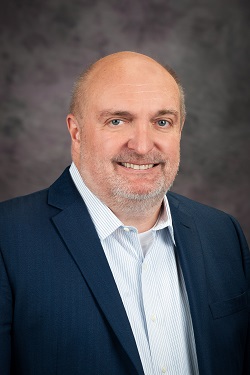 Specializing in organic chemistry with research specialties in chemical biology, diagnostic imaging, materials, medicine and supramolecular/nanochemistry, Bossmann was honored as the recipient of the Erwin W. Segebrecht Award for Excellence and Inspiration in Teaching, Research and Service in 2017. Bossmann also earned the honor of Stem Research Exemplar by the Research Exemplar Project of the Washington University School of Medicine in St. Louis in 2017.
Specializing in organic chemistry with research specialties in chemical biology, diagnostic imaging, materials, medicine and supramolecular/nanochemistry, Bossmann was honored as the recipient of the Erwin W. Segebrecht Award for Excellence and Inspiration in Teaching, Research and Service in 2017. Bossmann also earned the honor of Stem Research Exemplar by the Research Exemplar Project of the Washington University School of Medicine in St. Louis in 2017.
Bossmann came to Kansas State University in 2004. He received his doctoral and master's degrees in chemistry from the University of Saarland in Germany. He earned a second doctoral degree in chemical and process engineering from the University of Karlsruhe, Germany. His research has been supported by organizations such as the National Science Foundation, National Institutes of Health, Centers of Biomedical Research Excellence, Anticipate Ventures LLC and the National Endowment for the Arts.
In 2018, Bossmann took leadership of the Center of Excellence for Pancreatic Cancer Research, focusing on cancer detection, drug discovery and studies involving in-vivo techniques and magnetic resonance imaging. A major goal of the center is to make earlier detection possible by developing inexpensive liquid biopsy methods that enable frequent and routine testing for onset or recurrence of pancreatic cancer.
Before coming to Kansas State University, Bossmann served as an associate professor and assistant professor at the University of Karlsruhe in Germany and as a postdoctoral research fellow at Columbia University.
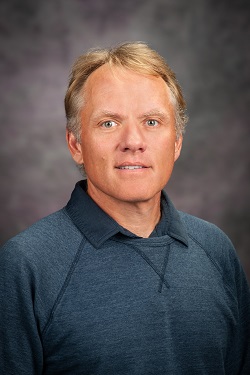 Gido's research in the Fish Ecology Lab focuses on the conservation of aquatic systems in the western and central U.S., specializing in fish ecology, invasive species effects and fish assemblage structure. Gido has contributed significant findings to the field of biology with more than 120 peer-reviewed publications.
Gido's research in the Fish Ecology Lab focuses on the conservation of aquatic systems in the western and central U.S., specializing in fish ecology, invasive species effects and fish assemblage structure. Gido has contributed significant findings to the field of biology with more than 120 peer-reviewed publications.
Among a number of honors and awards, Gido received the Outstanding Graduate Faculty Award from the Division of Biology in 2012. Gido also earned recognition for the George Miksch Sutton Award in Conservation Research in 2001 and the Best Paper Presentation award from the Kansas Chapter of the American Fisheries Society in 2003.
Gido has received extensive support for his research from the Kansas Department of Wildlife and Parks, National Science Foundation and Kansas State University, among others. He also is a member of several professional organizations, including the American Fisheries Society, Ecological Society of America, Southwestern Association of Naturalists and the Society of Freshwater Science. He has provided a number of professional services, serving on the editorial board of Freshwater Science, STREON working group for the National Ecological Observatory Network, and reviewing manuscripts for over 30 peer-reviewed journals.
Receiving his doctorate from the University of Oklahoma in 1999, Gido has been at Kansas State University since 2001 and was promoted to full professor in 2012. He teaches a number of courses and is a research advisor to both graduate and undergraduate students.
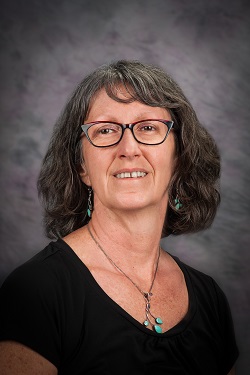 Kirkpatrick focuses on the role of timing and reward processes in determining impulsive and risk-taking behaviors in rats, examining the interactions between timing and reward processing, examining the effect of pharmacological interventions on timing and choice behavior, and assessing the role of reward processing neural substrates.
Kirkpatrick focuses on the role of timing and reward processes in determining impulsive and risk-taking behaviors in rats, examining the interactions between timing and reward processing, examining the effect of pharmacological interventions on timing and choice behavior, and assessing the role of reward processing neural substrates.
In 2017, Kirkpatrick became director at the Cognitive and Neurobiological Approaches to Plasticity Center, which is funded by a $10.6 million grant from the National Institutes of General Medical Sciences. Kirkpatrick also recently received grant funding from the National Institutes of Mental Health.
Kirkpatrick leads research at the Reward, Timing and Decision Lab at Kansas State University, where the focus of research involves exploring the intersection of the three subsystems that make up the reward system. Most recently, the lab has developed time-based interventions to promote self-control as potential treatments for a range of diseases and disorders.
Kirkpatrick received her doctorate from the University of Iowa in 1995 before working as a postdoctoral fellow at Brown University. Kirkpatrick established the York Timing Laboratory at the University of York, United Kingdom, where she spent eight years as a faculty member before joining Kansas State University in 2008.
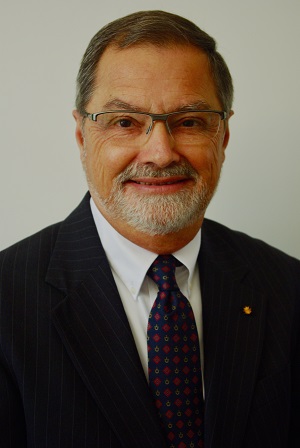 Smith is an international authority on plant resistance to arthropods, authoring three books, 17 book chapters and 115 refereed journal articles. He has served as editor or editorial board member for five scientific journals, including Nature Scientific Reports,and has been invited to present his research at 59 conferences in the U.S. and 15 foreign countries since 1996.
Smith is an international authority on plant resistance to arthropods, authoring three books, 17 book chapters and 115 refereed journal articles. He has served as editor or editorial board member for five scientific journals, including Nature Scientific Reports,and has been invited to present his research at 59 conferences in the U.S. and 15 foreign countries since 1996.
Smith's research, which has earned national and international recognition, was the first to demonstrate that, within minutes, wheat plants produce molecular defenses to aphid feeding. He later identified the first strain of an aphid pest that overcomes these defenses. Smith has received over $10 million in extramural funding at Kansas State University from the U.S. Department of Agriculture, the National Science Foundation, the U.S. State Department and the Kansas Wheat and Soybean commissions.
An officer or governing board member of numerous scientific research organizations, Smith was named a fellow of the American Association for the Advancement of Science in 2015 and a fellow of the Entomological Society of America in 2006. He is an honorary member of the scientific honor societies Gamma Sigma Delta, Sigma Xi and Beta Beta Beta. A Fulbright scholar in the Czech Republic in 2002, Smith has received the Entomological Society of America 2010 Recognition Award and 2019 C.V. Riley Award. He was honored with the 2016 Lifetime Achievement Award by the International Plant Resistance to Insects Workshop.
Smith has served as a professor in the university's entomology department since 1990 and was department head from 1990-1996. Previous appointments were entomology division chair at the University of Idaho and professor of entomology at Louisiana State University. Smith received his bachelor's degree in biology from Southwestern Oklahoma State University and his master's degree and doctorate in entomology from Mississippi State University. He also has been a postdoctoral research associate at North Carolina State University.
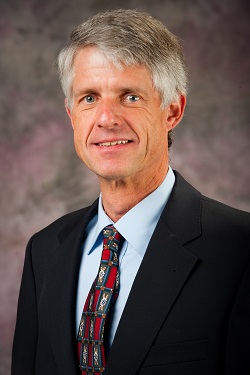 Thumm's research focuses on numerical modeling interactions of intense pulses of laser light and of particle beams with atoms, small molecules, clusters, nanoparticles, surfaces and thin films. Thumm has three patents and has written and co-authored more than 110 publications in peer-reviewed journals and more than 300 non-refereed publications and abstracts.
Thumm's research focuses on numerical modeling interactions of intense pulses of laser light and of particle beams with atoms, small molecules, clusters, nanoparticles, surfaces and thin films. Thumm has three patents and has written and co-authored more than 110 publications in peer-reviewed journals and more than 300 non-refereed publications and abstracts.
Contributing to a variety of different areas of physics, Thumm's theoretical work on electron-atom collisions, light-matter interactions, highly-charged ions and plasmonic nanostructures has broader impacts on novel light sources, thermionic energy conversion, controlled thermonuclear fusion, solar-energy harvesting, catalysis, functional nanostructures, and novel electro-optical switches and detectors. He was recognized in 2014 with the Commerce Bank and W.T. Kemper Foundation Distinguished Graduate Faculty Award and in 2015 with the Senior Research Award from the Alexander-Von-Humboldt Foundation.
In 2003, Thumm and his team were the first to predict so-called "vibrational revivals" in the H2+ molecule, which were subsequently revealed in experiments at the Max-Planck Institute for Nuclear Physics in Heidelberg, Germany, in 2006, confirming in detail the team's theoretical predictions.
Thumm studied physics and mathematics in Freiburg and Heidelberg, Germany, and in Paris. He received his diploma degree and his doctorate from the University of Freiburg in Germany. He did part of his graduate studies at Oak Ridge National Laboratory in Tennessee and was a postdoc at the Joint Institute for Laboratory Astrophysics in Boulder. He spent sabbaticals at the Harvard Smithsonian Center in Cambridge, Massachusetts, the Max-Planck Institute for Nuclear Physics in Heidelberg, and at the University of Freiburg. He worked outside academia as research director at Advanced Photonics Technologies AG in Germany.
Thumm has been with the Kansas State University physics department and its J.R. Macdonald Laboratory since 1992.
K-State Student News
Veterinary student receives Simmons business aptitude scholarship
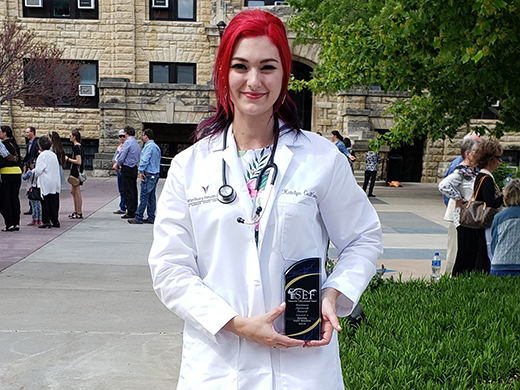 Katelyn Guill-Sanchez, Hudson, New Hampshire, who just started her fourth year at the Kansas State University College of Veterinary Medicine, was recently selected as the university's recipient of a $3,000 national scholarship sponsored by the Simmons Educational Fund and its Business Aptitude Award Program.
Katelyn Guill-Sanchez, Hudson, New Hampshire, who just started her fourth year at the Kansas State University College of Veterinary Medicine, was recently selected as the university's recipient of a $3,000 national scholarship sponsored by the Simmons Educational Fund and its Business Aptitude Award Program.
Every year, the Simmons Educational Fund awards $3,000 to one veterinary student from each participating school in North America through its Business Aptitude Award Program, which provides $100,000 annually in student awards.
"I applied for the SEF Business Aptitude Award because I have developed a passion for business which has blossomed throughout vet school and my participation in the Veterinary Business Management Association," Guill-Sanchez said. "I dream of owning a mobile small animal/exotic companion animal practice and this award is a huge step toward achieving my goal."
The award is offered to third-year veterinary students at each veterinary school in the U.S. and Canada, where the awards are presented during the school's spring awards ceremonies. Recipients are chosen either by a school committee or by a Simmons regional leader. All $3,000 winners are eligible to compete for the $15,000 grand award. All regional winners submit to the Simmons Education Fund board a resume and a short essay.
The Simmons Educational Fund is a nonprofit corporation founded in 2002 by Simmons & Associates. It was created to educate practitioners and students about the business of veterinary medicine. Since its founding in 2002, the fund has reached thousands of veterinarians through its newsletters and sponsorship of speaking engagements, continuing education meetings and veterinary organizations with similar goals.
Kansas State University student awarded Gilman Scholarship study in New Zealand
Emme Mount, junior in physical sciences and global food systems leadership, Wichita, will spend the summer in New Zealand with help from the Benjamin A. Gilman International Scholarship.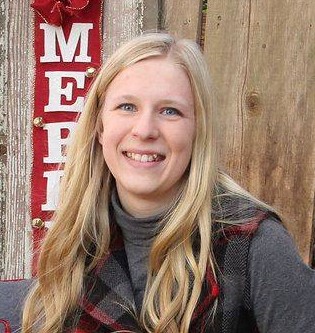
Congressionally funded and established by the International Academic Opportunity Act of 2000, the Gilman Scholarship Program helps U.S. undergraduate students at two-year or four-year colleges or universities participate in study abroad programs worldwide.
"I will have the opportunity to go on a two-week expedition through the north and south islands of New Zealand while completing three case studies related to viticulture, high-country intensive farming and the wool industry," Mount said. "This study abroad experience will be my very first time leaving the country and I am excited for this new adventure ahead of me."
In addition, Mount will attend a four-week internship to get experience in conservation, organic farming, community outreach and resource management. She will give a presentation of her experience at Massey University at the end of the trip.
She is a member of Kansas State University's Office for the Advancement of Women in Science and Engineering and a resident assistant in Boyd Hall. A 2016 graduate of Clearwater High School, she is the daughter of Shawn Mount and Allisha Schermerhorn, Wichita.